Use this poster and accompanying worksheet to teach your students about whole body listening.
What Is Whole Body Listening?
Whole body listening is a concept that teaches students to use their entire body to listen actively and attentively. It goes beyond just hearing words and involves engaging multiple senses and parts of the body to fully focus on the speaker. Whole body listening has many benefits, such as minimising distractions, improving retention of information and demonstrating empathy.
To help your students learn the characteristics of whole body listening, Teach Starter has created this visually engaging poster and accompanying worksheet. The poster features a very friendly monster who is demonstrating the components of whole body listening. These are:
- Brain is switched on and thinking.
- Ears are listening carefully.
- Mouth is closed and quiet.
- Body is still and facing the speaker.
- Heart is caring about what the speaker is saying.
- Feet are still and quiet.
- Hands are still at the side of the body or in the lap.
- Eyes are looking at the speaker.
The worksheet enables students to demonstrate what they have learned about whole body listening by drawing a line from the descriptions above to the associated body parts.
Whole Body Listening for Both Teachers and Peers
This resource has been designed by our team to help students learn the benefits of whole body listening when engaging with both their teachers and their peers. The importance of using these skills in their daily interactions is outlined below:
- Whole Body Listening to Teachers – When students listen attentively to teachers, they are better equipped to follow instructions, understand lessons and meet expectations. This leads to more effective learning!
- Whole Body Listening to Peers – Demonstrating whole body listening with peers is equally important. It teaches students to respect their classmates’ ideas, builds empathy and fosters better relationships among classmates.
Download and Print This Whole Body Listening Poster
This resource downloads as either a full-colour or black-and-white PDF. Use the Download button to access your preferred version.
If you intend to display the poster, we recommend enlarging it for enhanced readability.
Teach Relationship Skills with Teach Starter!
The Teach Starter team understands the importance of teaching relationship skills from an early age. Here are some more resources you can use when teaching these invaluable life skills:
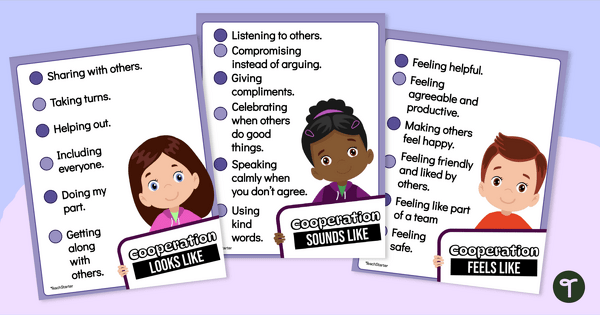
teaching resource
Looks Like, Sounds Like, Feels Like - Cooperation Anchor Charts
Teach your students what cooperation looks, feels, and sounds like with a set of printable posters.
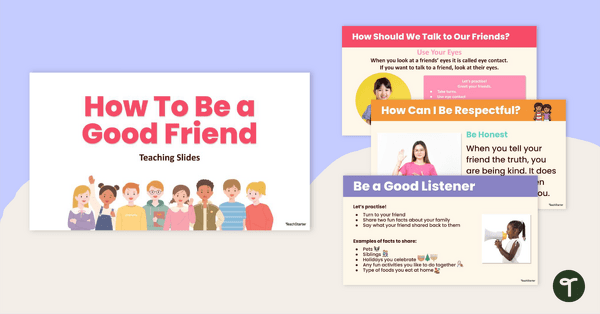
teaching resource
How To Be a Good Friend – Teaching Slides
Learn how to form healthy and long-lasting friendships with this set of teaching slides.
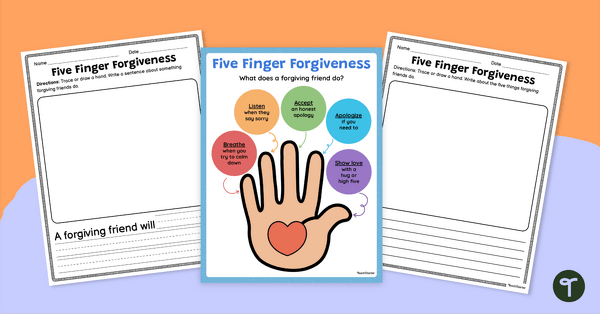
teaching resource
Five Finger Forgiveness – Poster and Writing Activity
Teach your students how to forgive others in order to keep and maintain relationships with this poster and writing prompt.
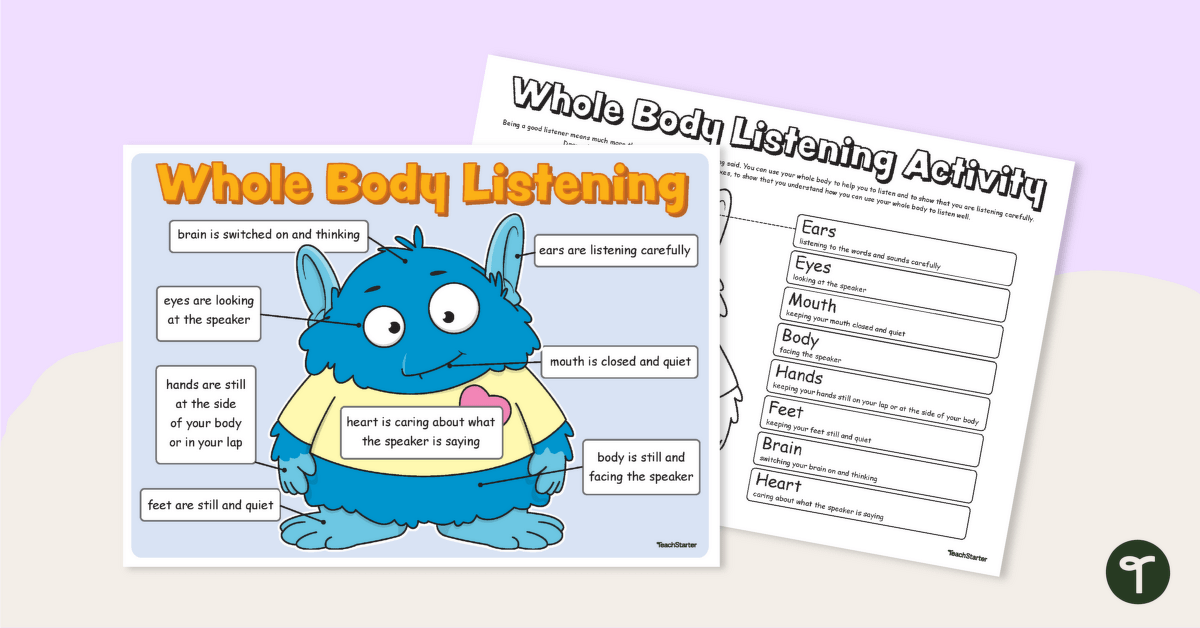

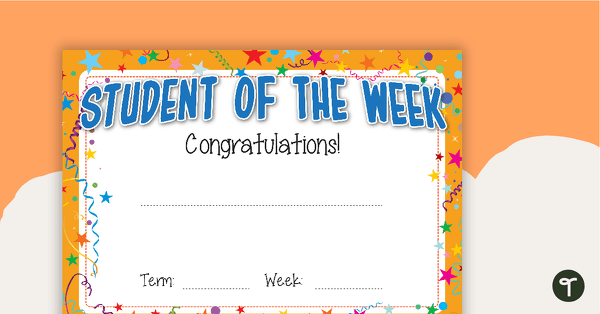
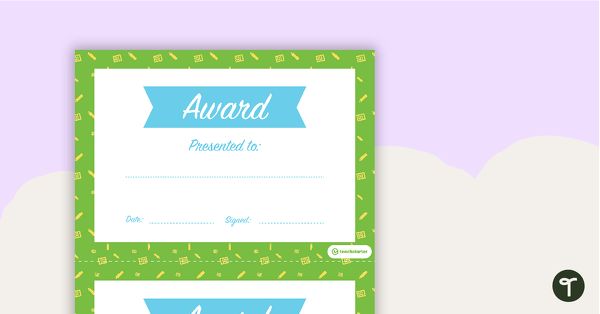
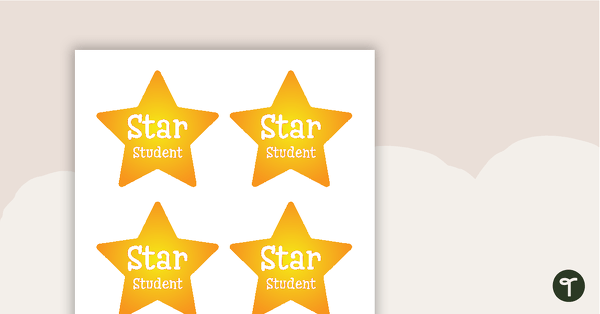
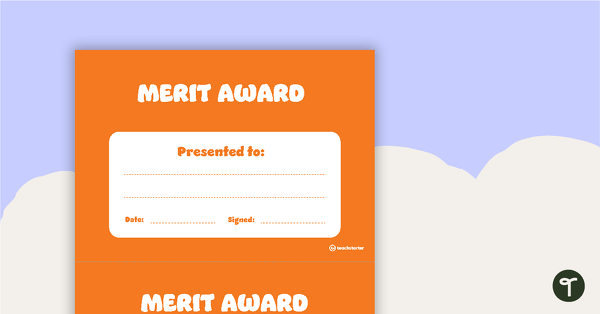
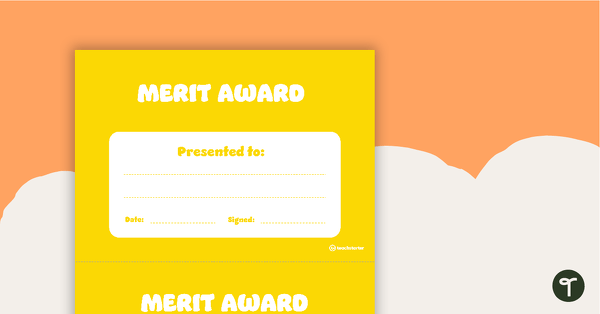
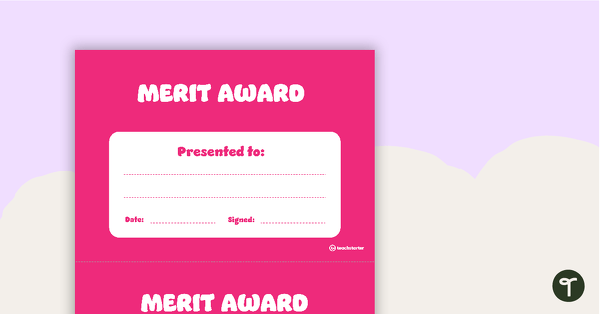
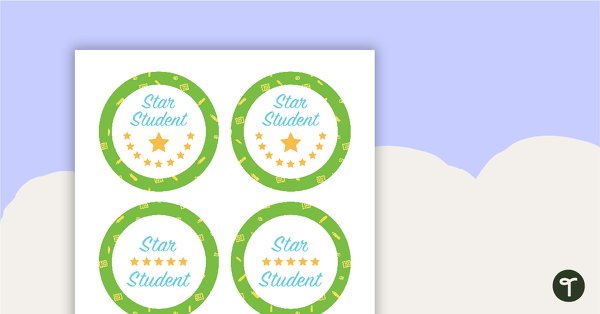
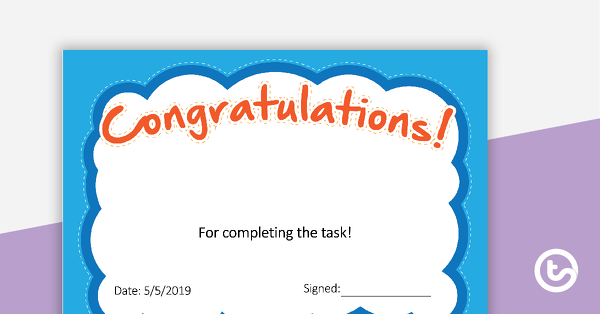

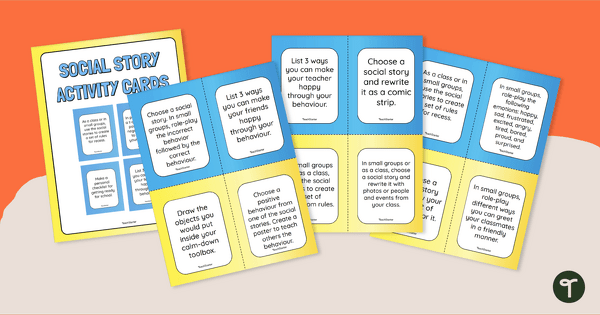
Hi Michelle, Great suggestion! I’ve made a request to our resource team via the “Suggest a Change” function found at the bottom of the resource page. They’ll reach out when they’ve made both of these resources to you directly 🙂